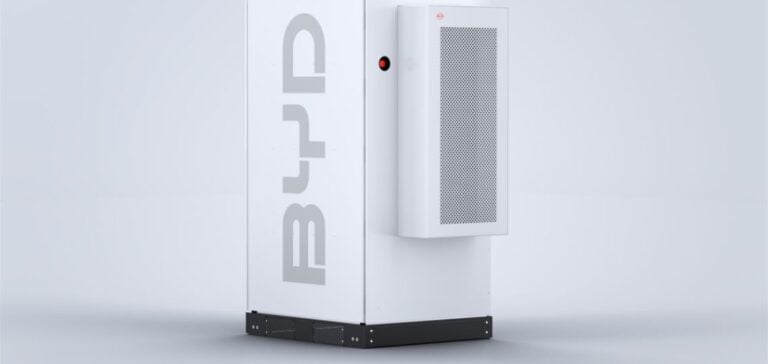Saudi Electricity Company (SEC) has officially awarded contracts for the implementation of battery energy storage systems (BESS) with a total capacity of 2,500 MW/10,000 MWh. These projects mark a significant step in Saudi Arabia’s energy strategy, focused on modernizing and optimizing the national power grid.
Projects distributed across five key sites
The installations, addressing a broad spectrum of energy demands, will be implemented in five strategic regions of the country:
– Riyadh: 500 MW/2,500 MWh
– Qaisumah: 500 MW/2,500 MWh
– Dawadmi: 500 MW/2,500 MWh
– Al Jouf: 500 MW/2,500 MWh
– Rabigh: 500 MW/2,500 MWh
Each site will play a critical role in balancing energy supply and demand at both local and national levels.
The companies behind the project
Two prominent companies have been selected to manage the various stages of this extensive project:
1. **BYD Auto Industry Co Ltd**: Responsible for designing, supplying, supervising the installation, and maintaining the battery systems.
2. **Alfanar Projects**: Tasked with engineering, procurement, and construction (EPC) of substations and related infrastructure.
Applications and goals of BESS
The primary function of the BESS installations will be **load shifting**. This technology will store surplus energy produced during periods of low demand to redistribute it during peak consumption. Additionally, part of the capacity will be dedicated to:
– Restarting the grid in case of a total blackout (black start)
– Frequency regulation to maintain grid stability
– Voltage support, ensuring high-quality energy supply
These systems will also serve as a replacement for the partial load operation of conventional power plants, thereby reducing fossil fuel consumption.
A political and economic ambition
With this project, Saudi Arabia strengthens its energy strategy by investing in modern and sustainable infrastructure. The objective is to diversify the energy mix, reduce greenhouse gas emissions, and consolidate its position as a regional leader in the energy sector. This initiative also reflects the country’s commitment to addressing economic and environmental challenges while ensuring a successful energy transition.





















